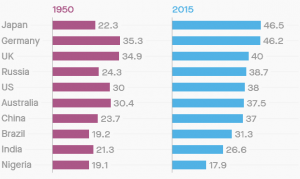Mariner has never done this before but he feels an old post speaks directly to a latent disorder in our time. We as a nation, as a culture, even as a family member, have stopped touching other people – and other people have stopped touching us.
Who was the last person you feel changed your life? Who was the last person that taught you a maturing sensation about life? Who was the last person you considered wise – and without knowing shared that wisdom with you and made you a better person, a smarter person, a more mature person? It’s not physical touching that’s at risk, it’s learning through others, that your soul, your sense of self, your sense of human responsibility is changed. The old post:
The Power of Mentors
Posted on January 17, 2017 by skipper
Usually, in our late teens and early twenties, each of us comes across a special person. This person is a mentor; not necessarily a teacher from school but someone who enters your life in a direct way – perhaps someone you golf with or meet on the job or perhaps just an older neighbor you never really talked to before.
You learn some special wisdom from this person. Something that helps you finish growing up with a bit more wisdom and maturity; someone who may have enlightened you to what courage is about or what it means to be gracious or what it really means to take responsibility. Sometimes it’s a book or a trip. Sometimes, you just watch a special person perform in a special way that changes you for the rest of your life.
The mariner actually had two or three mentors. One, named Mike, was more or less a surrogate father for about five years. Being a scratch golfer, Mike taught him to play a decent round; he and mariner were leaders in the Explorer Scouts. We fished in the rushing rivers of the Appalachians. But most intensely Mike taught the mariner what courage was all about. At the age of 41, Mike had a massive heart attack. He was bedridden and limited to the first floor of his home. After a month or so, he advised his wife and children that he could not live like an invalid any longer. Knowing he was not going to live long, he asked the doctor to grant him a release. Mike went back to work; He played nine holes with his son and the mariner; He went to an Orioles game with friends; a week later he took off for two days of deer hunting with friends. It was a typical regimen for him. Two weeks later he died of a fatal heart attack.
Mike was greatly missed by many people. He was a gracious and caring person. He has remained mariner’s benefactor to this day. He taught mariner the value of sharing; he taught confidence; he taught the power of the human spirit.
– – – –
Mariner came by another mentor via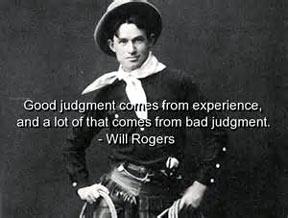 public reading sources, books, and old timey movie clips. The reader likely knows him, too: Will Rogers. Will was a traveling humorist and writer. He was very popular with the national audience – constantly full of funny quips and derisive comments about any institution, especially government. Will had a way of making you laugh at yourself despite the sarcasm. He lived from 1879 to 1935, dying in a private airplane crash at 55 on the way to Alaska with Wiley Post. Will was born to Cherokee parents in Oologah, Oklahoma on a Cherokee reservation. In his young days he performed in Wild West shows, becoming an expert at cowboy skills and especially enjoyed doing tricks with lariats. He moved to Broadway shows, movies and writing – truly becoming a world famous author and speaker.
public reading sources, books, and old timey movie clips. The reader likely knows him, too: Will Rogers. Will was a traveling humorist and writer. He was very popular with the national audience – constantly full of funny quips and derisive comments about any institution, especially government. Will had a way of making you laugh at yourself despite the sarcasm. He lived from 1879 to 1935, dying in a private airplane crash at 55 on the way to Alaska with Wiley Post. Will was born to Cherokee parents in Oologah, Oklahoma on a Cherokee reservation. In his young days he performed in Wild West shows, becoming an expert at cowboy skills and especially enjoyed doing tricks with lariats. He moved to Broadway shows, movies and writing – truly becoming a world famous author and speaker.
“Rogers increasingly expressed the views of the “common man” in America. He downplayed academic credentials, noting, “Everybody is ignorant, only on different subjects. Americans of all walks admired his individualism, his appreciation for democratic ideas, and his liberal philosophies on most issues. Moreover, Rogers extolled hard work and long hours of toil in order to succeed, and such expressions upheld theories of many Americans on how best to realize their own dreams of success. He symbolized the self-made man, the common man, who believed in America, in progress, in the American Dream of upward mobility. His humor never offended even those who were the targets of it.”[1]
It was Will’s personal economic philosophy of life that caught the mariner’s attention. In various periods of his life, Will lived on a ranch in California. He had his family and a number of Indian workers. Will followed the American Indian philosophy: The hunters go out on a hunt and when they return with the kill it is given to the tribe to distribute. The hunt ers do not own or control the kill; it belongs to the tribe and there are no requisites for anyone to have access to the kill. Simply, the kill belongs to everyone.
ers do not own or control the kill; it belongs to the tribe and there are no requisites for anyone to have access to the kill. Simply, the kill belongs to everyone.
Will worked hard for his income; similar to tribal procedure, the profits of Will’s labors were, as simply as the hunters, turned over to the family. Will didn’t pay his workers, their sustenance was provided the same as with everyone – family, Indians, food, clothing, materials in general. Everyone on the ranch received the same benefits and was cared for in like fashion.
Conservatives call this a dole. Profit is earned and owned by the one who earns it. Handouts are unfair and signify laziness, cheating, and unworthiness. Note that the Indian culture, along with Will, did not confuse individual worth as a scale of value equal to the amount of profit at hand. Mariner remembers the day he had this insight. How novel, how caring, how fair, how sustainable. This economy which belonged to no one and everyone had immense capacity to sustain far more participants (not just the 1%).
Without hearing, mariner knows the selfish will lash out at those who seem to be working less than the mighty profit takers. Alas, conservatives, it is a complex world and not everyone has the same profile.
Will wrote during the depression: “Now everybody has got a scheme to relieve unemployment, but there is just one way to do it and that’s for everybody to go to work. ‘Where?’ Why right where you are, look around and you see lots of things to do, weeds to be cut, fences to be fixed, lawns to be mowed, filling stations to be robbed, gangsters to be catered to.…”
In reality, the variance in work capacity or in amount of income is not an issue. On Will’s ranch, no one was told they had to assist with sustenance; they knew it – without intimidation or belittlement. Everyone saw to it that some part of the ranch labor was attended to without condescension. The trick is to not bind hunting to self-worth.
Mariner is pleased to note that Sweden, as a nation, as everyone’s government, has just passed legislation to experiment with Will’s way. Several thousand people will receive about $600/month and not be required to work at a defined ‘job.’ It is not seen as a dole; it is seen as a way to stretch the kill across everyone even when resources become lean. Sweden understands that humans have been scarfing down the Earth’s wealth far beyond what will be available as humans expand their population by another 40% in 100 years. Don’t worry about working at a defined job – everyone will be working at something to better the tribe.
Isn’t it fascinating that a Stone Age civilization is showing modern man the right way to do things?
Ancient Mariner
[1] James M. Smallwood, “Will Rogers of Oklahoma: Spokesman for the ‘Common Man’”. Journal of the West 1988 27(2): 45-49. ISSN 0022-5169
![]() The United States is fortunate that misinformation did not lead to bombing and killing during the political campaign. Social media remains an uncontrolled communication service unhindered by the scruples and regulations of America’s free press. While the US suffers racial hate in the bombings and killings in black churches, Sri Lanka suffers religious hatred fueled by racism and politics. Life in the US could be worse. So far citizens yell and curse one another but warfare is not a tool of our religions or politics except for the armed crazies who seem to have a bias toward school children.
The United States is fortunate that misinformation did not lead to bombing and killing during the political campaign. Social media remains an uncontrolled communication service unhindered by the scruples and regulations of America’s free press. While the US suffers racial hate in the bombings and killings in black churches, Sri Lanka suffers religious hatred fueled by racism and politics. Life in the US could be worse. So far citizens yell and curse one another but warfare is not a tool of our religions or politics except for the armed crazies who seem to have a bias toward school children.![]() Talk about violence on TV, did the reader watch Bernie Sanders on Fox television? A notable moment to remember and one that caught the debaters off guard was when Bernie asked the audience if they would rather have single payer health coverage or stay with insurers. A significant majority raised their hands for single payer.
Talk about violence on TV, did the reader watch Bernie Sanders on Fox television? A notable moment to remember and one that caught the debaters off guard was when Bernie asked the audience if they would rather have single payer health coverage or stay with insurers. A significant majority raised their hands for single payer.![]() It is true that society would be less argumentative if our children were educated in contemporary subjects that provide a common (apolitical) foundation for life. However, public education is subject to imposing political and religious influence. Civics isn’t taught anymore because political locals prefer less complicated, controlled campaigns; American history of minorities isn’t taught because of race prejudice; Religions of the world and the accompanying sociology isn’t taught because of conflicts between other religions, science and Christian bias. Health practices aren’t taught because of biased resistance to issues like sex, abortion and flu shots.
It is true that society would be less argumentative if our children were educated in contemporary subjects that provide a common (apolitical) foundation for life. However, public education is subject to imposing political and religious influence. Civics isn’t taught anymore because political locals prefer less complicated, controlled campaigns; American history of minorities isn’t taught because of race prejudice; Religions of the world and the accompanying sociology isn’t taught because of conflicts between other religions, science and Christian bias. Health practices aren’t taught because of biased resistance to issues like sex, abortion and flu shots.
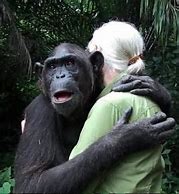
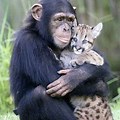
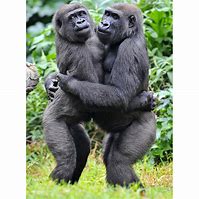

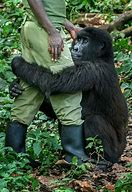


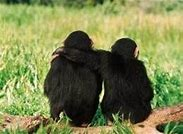



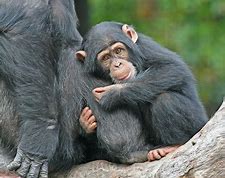 ֎ It is beyond question that hugging, touching, kissing, caressing, and many other intimate reinforcements are a biological requirement in primates – in fact all mammals require to some degree feelings of value, justification, affection, friendship, bonding, celebration and love.
֎ It is beyond question that hugging, touching, kissing, caressing, and many other intimate reinforcements are a biological requirement in primates – in fact all mammals require to some degree feelings of value, justification, affection, friendship, bonding, celebration and love. public reading sources, books, and old timey movie clips. The reader likely knows him, too: Will Rogers. Will was a traveling humorist and writer. He was very popular with the national audience – constantly full of funny quips and derisive comments about any institution, especially government. Will had a way of making you laugh at yourself despite the sarcasm. He lived from 1879 to 1935, dying in a private airplane crash at 55 on the way to Alaska with Wiley Post. Will was born to Cherokee parents in Oologah, Oklahoma on a Cherokee reservation. In his young days he performed in Wild West shows, becoming an expert at cowboy skills and especially enjoyed doing tricks with lariats. He moved to Broadway shows, movies and writing – truly becoming a world famous author and speaker.
public reading sources, books, and old timey movie clips. The reader likely knows him, too: Will Rogers. Will was a traveling humorist and writer. He was very popular with the national audience – constantly full of funny quips and derisive comments about any institution, especially government. Will had a way of making you laugh at yourself despite the sarcasm. He lived from 1879 to 1935, dying in a private airplane crash at 55 on the way to Alaska with Wiley Post. Will was born to Cherokee parents in Oologah, Oklahoma on a Cherokee reservation. In his young days he performed in Wild West shows, becoming an expert at cowboy skills and especially enjoyed doing tricks with lariats. He moved to Broadway shows, movies and writing – truly becoming a world famous author and speaker.
